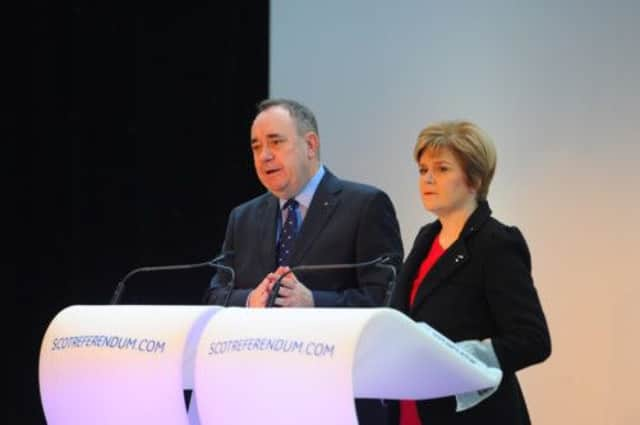Comment: white paper will not win referendum


This document, impressive though it is, will not win the referendum – if anything the document will harm those who favour independence.
To be sure there are many laudable ideas in the document, and also many sweeteners that will appeal to those on the Centre-Left – especially Labour voters - who may be tempted to vote yes. The list of policy promises is impressive. Who but the most dyed in the wool Tories could possibly be against thirty hours of childcare per week, the abolition of the bedroom tax, a higher minimum wage? These ideas are about as difficult to criticise as motherhood and apple pie.
Advertisement
Hide AdAdvertisement
Hide AdBut referendums are not won by white papers. Referendums are won if you set the agenda and force your opponents on the back foot.
And white papers in referendum campaigns rarely accomplish this feat. A couple of examples from other prominent referendums might be useful. In 1992, the Danes held a referendum on whether to join the European Union. The opponents – the organisation People’s Movement Against the EU- barraged the Danish government with questions and asked them to outline the consequences of joining the EU, and to provide the expert evidenced on which the decision was made. Government obliged, after all it believed it had a good case. The government published the Hvidbogen – literally the ‘whitepaper’. The white paper did not silence the critics; rather it gave them further ammunition. The discussion moved from being one on whether the Danes would benefit from the single currency and a common European foreign policy to becoming one about the trustworthiness of the data. Not surprisingly, the referendum resulted in a defeat.
A few years later, in 2008, I was covering the Irish referendum on the Lisbon Treaty. Enda Kenny, who later became Taoiseach – or Prime Minister – told me; “I think we have run a strong campaign, we have set out in detail how the Irish voters will benefit from the Lisbon Treaty. I am confident that we will win”. Two hours later, the results were in. The long detailed explanation had raised more doubt that the opposite. And an admission by the then Taoiseach Brian Cowen, that “he had not read the document cover to cover”, basically sealed the fate of the yes-campaign.
Fuel for opposition
The problem with white papers is that they are hostages to fortune. They allow the opponents to focus on the weaker arguments and thereby to divert attention away from the bigger debate.
So what is Yes Scotland to do? How can they change the game? Can they?
“You campaign in poetry, but you govern in prose”, said the legendary former Democratic Governor of New York Mario Cuomo.
The SNP administration has been masters of prose. They have – as even their opponents probably would admit – been good stewards of Scotland. They have defended Scottish interests by keeping shipyards open and ensured that Grangemouth did not close.
But the poetry bit is their weakness. Nationalists are normally better at appealing to the heart than the head. But the white paper reads more like a report by management consultants than a poetic aspiration for an independent country.
Advertisement
Hide AdAdvertisement
Hide AdReferendum campaigns are not won by those who try to set out rational arguments - Nor are election campaigns. To win you need to have a single-minded determination, and be willing to use all available means. Just think back to the 1998 referendum on the Good Friday Agreement in Northern Ireland in 1998. In this referendum Tony Blair and others supporting a ‘yes’ simplified the argument and exploited fear and uncertainty to good effect. Yes Scotland needs to do the same if they are to have any chance of winning. For politics is not a gentle debating contest, but a war of words.
“Politics”, as the political philosopher Carl Schmitt once said, “is the sphere in which you distinguish between friend and enemy”. Yes Scotland needs to realise that the referendum is a battle between them and their political enemies. They need to realise that referendums are won by pathos and by bare knuckle fights and not by “reason and common sense”, to use the words of the First Minister. The document is a decent essay, but it does not answer the exam question, why should Scotland become independent? The answer to that question is an emotional one, not one provided by a technical report.
• Dr Matt Qvortrup teaches politics and law at Cranfield University
SEE ALSO: